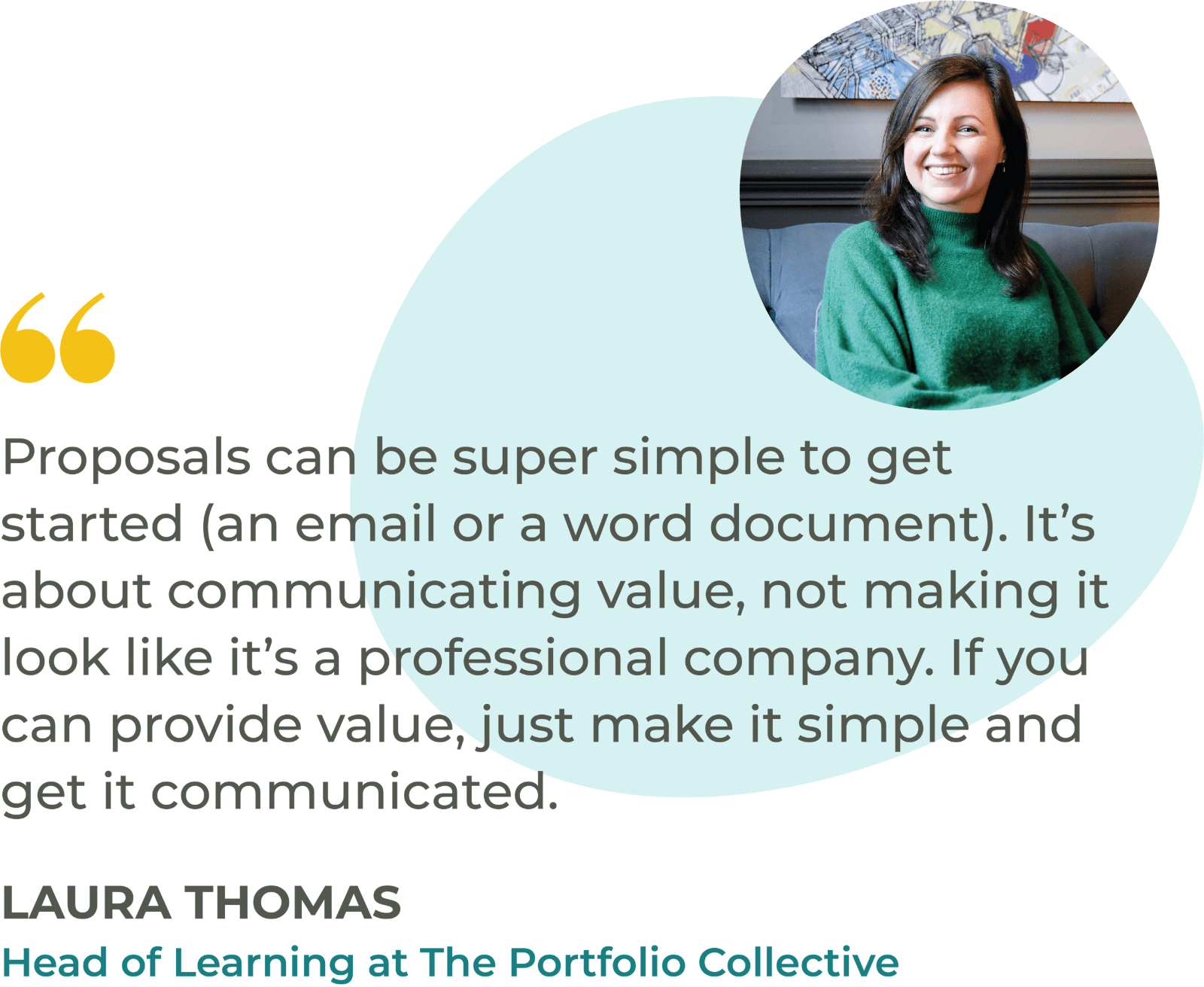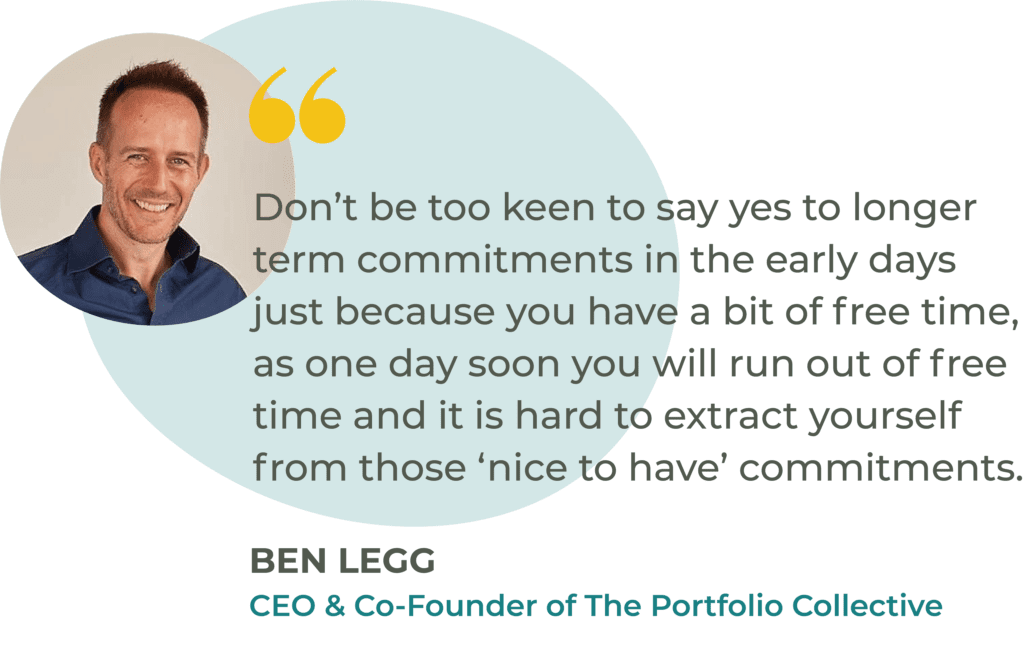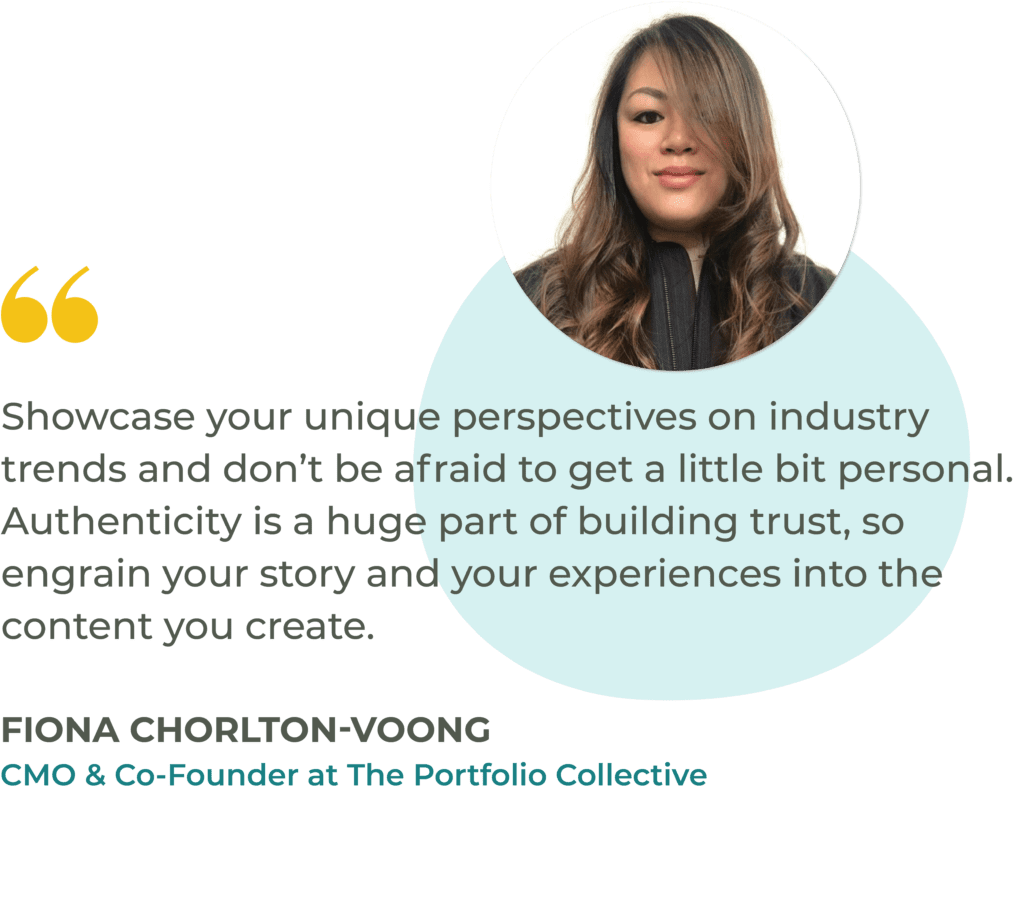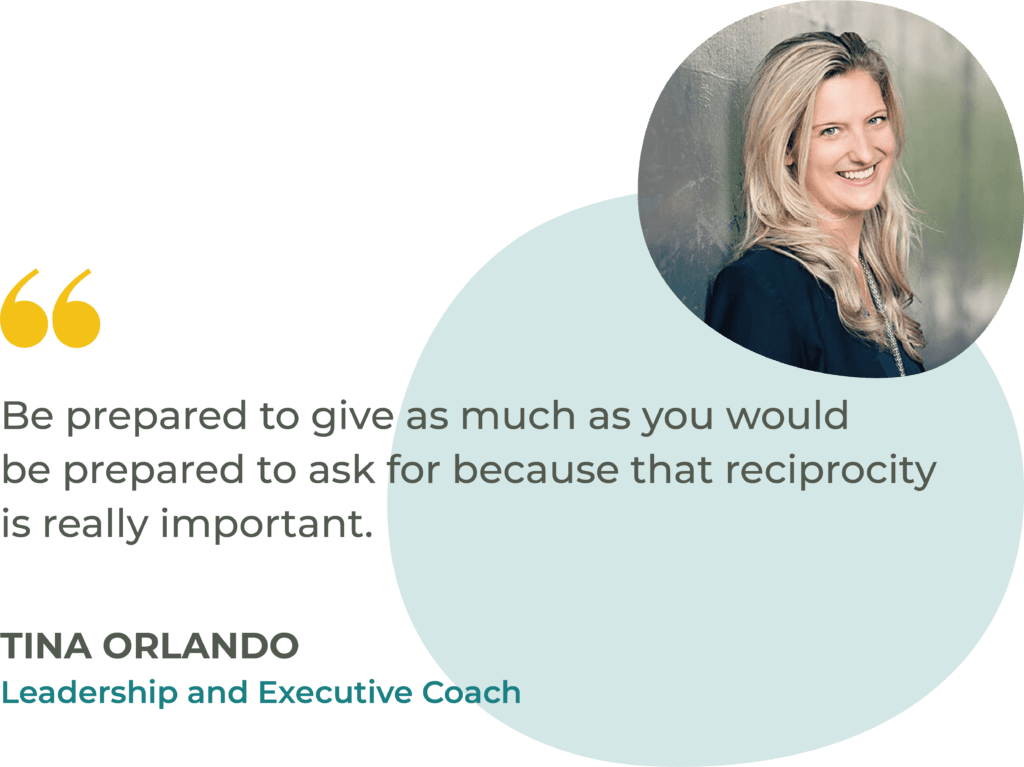Stephanie Dotto
Retrospect is a powerful tool in an online community. We learn together, we grow together and often we teach one another through personal experiences. It’s what helps us develop as people and as professionals, and it keeps us driving to do better every single day.
The truth is that nobody gets something 100% right the first time around. A career is a process of trial and error; a series of stumbles and strides. So when we asked our community what they wished they’d known when they first started their portfolio careers, many of our members were forced to stop and examine the mistakes and realisations that led them to where they are today.
What that resulted in is a list of five poignant lessons every portfolio professional will learn at some point in their career. Here are the top tips from our community.

1. Not every pitch needs to be perfect
Pitching is hard, especially if you haven’t done it before. There’s a balance that needs to be struck between showcasing your value and brand while still addressing why you’re the best person for the job.
That can cause a lot of anxiety, especially in the beginning. Maybe you’re worried that your pitches aren’t professional enough or that any success you’ve had so far has been a result of dumb luck. Don’t stress, that’s absolutely normal. In fact, 70% of people experience Imposter Syndrome at some point in their lives, you just need to know how to move past that and feel confident in your own abilities.
It’s important to realise early on that not every proposal you send needs to be completely polished from day one.

It’s also worth noting that your services are likely to change several times throughout your career. What you’re pitching today may not be the same as what you’re pitching in six months or even six years. So don’t waste too many hours obsessing over the tiny details of your proposals now—you’ll spend plenty of time perfecting them as you grow your business.
2. Don’t undervalue yourself
So you’ve pitched for a project and the client is asking you to lower your rate. Surely that’s the best thing to do to help you gain a bit of experience, right? Not necessarily. Though charging less than your competitors can be effective in landing you work, what you often find is that the amount you’re getting paid isn’t actually worth the time you put in. That’s why it’s so important to do a bit of research to understand what you should be charging.

If someone claims they can’t afford you because of budget constraints, then move onto to someone who can. That doesn’t mean you should turn down every job that doesn’t want to pay your fees, but just be smart about negotiating. You don’t want to end up making less than the industry standard.
Remember, value is about more than just price. It’s about your time, your experience and your unique skills. Not everyone can do what you can. They might offer similar services, but what you do is one-of-a-kind, so be proud of that..

3. Boundaries are important—and so is time management
When you work for yourself, it’s often hard to draw a line between the personal and the professional. You’re in charge of your own schedule, and that means figuring out how to fit projects around the rest of your life.
If you want to maintain a good balance and ensure you’re looking after your wellbeing, it’s important to:
- Set clear working hours and learn to turn off when the work day is over.
- Be careful with technology—it’s so easy to answer a work email on your phone, no matter the time. That can lead to bad habits in the long run.
- Give yourself enough breathing space and avoid doing tasks in the evenings when you should be relaxing.
For more tips on productivity tools, check out this article.

If your workload is looking a bit overwhelming, we recommend plotting out your week. It helps to have a clear vision of how much time you’ll spend on a particular task. When you’re faced with a large project, try breaking it down into measurable parts. That way you have a better picture of how long it will really take to complete something.
Many people find the Pomodoro technique effective because it breaks your day into smaller chunks, allowing you to focus more clearly while still taking the necessary mental breaks.
4. Get your ideas out there
There’s a reason you decided to shift away from the traditional 9-to-5 corporate job to start your own business—you’re passionate about what you do. Chances are, you’re extremely knowledgeable too. So why not share your thoughts and ideas with a wider community of professionals?

Remember, it’s not just about having opinions; it’s about leading the conversation.
Sites like LinkedIn and Medium are great platforms for sharing your expertise and insights. Showcase your unique perspectives on industry trends and don’t be afraid to get a little bit personal. Authenticity is a huge part of building trust, so engrain your story and your experiences into the content you create.
The more active you are in your industry or community, the more you extend your network and land quality paid work. Plus, it’s a great way to showcase and strengthen your personal brand, which helps you stand out from your competitors.
5. Never underestimate the value of your network
These days, a network is more than just a list of colleagues and work friends—it’s a community and a support system. In other words, you’re not working in isolation. You can lean on your network for advice, references, introductions and even mentoring.
With so many virtual platforms available to help you connect with professionals in your field, it would be foolish not to utilise the full power of your network. Find people you admire and connect with them on LinkedIn. Or join a virtual event hosted by The Portfolio Collective. We guarantee you’ll meet plenty of people that can boost your career. But keep in mind, networking is a two way street.

Remember, it’s all a learning process
Ultimately, the biggest takeaway we got from our community is that you should never be afraid to fail. Sometimes, you don’t know how to do something correctly until you’ve discovered how not to do it.
Think this sounds like the right path for you? Come along to our monthly Community Welcome Call for new members to find out what a portfolio career could look like and how The Portfolio Collective can help you take those first steps towards professional success – and don’t forget to connect with our community!





One response to “Five things you should know when starting a portfolio career”
Thank you @nicola-twiston-davies, @alex-pitt-7, @ben-legg, @laura-thomastpc for all your comments that helped @stephaniedotto shape this article!